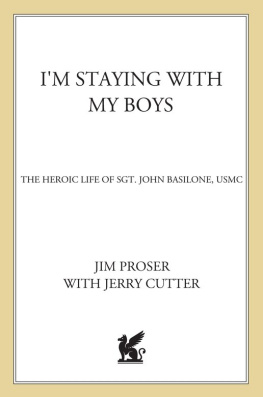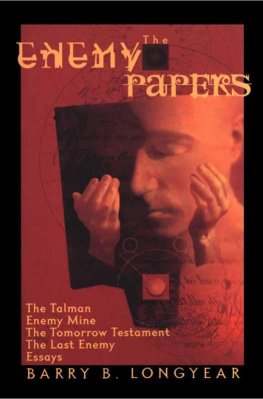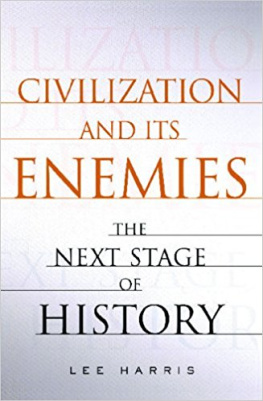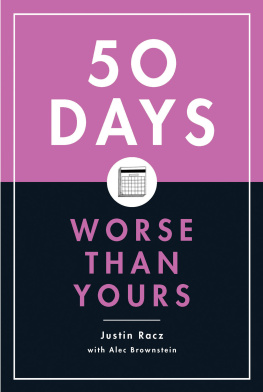James N. Mattis was the first Trump presidential cabinet nominee. His nomination received nearly unanimous bipartisan congressional support, with only one dissenting vote. He secured a rare waiver of the guidelines that exclude recently active military leaders from the position of secretary of defense. What could create such unprecedented unity, even enthusiasm, in the hyperpartisan political rancor of 2017?
No doubt the urgency of accomplishing a quick, smooth transition of military leadership was in play, but what were the other reasons behind this easy consensus? Beyond Mattiss obvious military competence for the position on paper, what were the qualities of character, the much-reported personal magnetism, that created such universal confidence? These qualities are the primary focus of this book. With the awesome power of Americas arsenal now under his command, we would be prudent to ask: Who is this man, underneath his generals stars?
We should ask how this humble and deeply thoughtful man has walked the path of mortal combat with the most barbaric evil of our time, Islamic terrorism. How is it possible that he has defeated the most bloodthirsty dictators and terrorists with insight, humor, fighting courage, and fierce compassion, not only for his fellow Marines but for the innocent victims of war? Fortunately many eyewitness accounts provide clues to these questions. We might look, for instance, to his lighthearted encouragement to his beloved Marines just before launching the Iraq invasion of Operation Iraqi Freedom, Fight with a happy heart and strong spirit.
The martial and personal values examined here have earned Jim Mattis the trust of Americas political leaders. But why should we, the people who must pay the price of freedom with our lives, trust this man? May you find the answer to that question here, in the words and deeds of a visionary warrior.
No Better Friend
General Krulak said, when he was commandant of the Marine Corps, every year starting about a week before Christmas he and his wife would bake hundreds and hundreds of Christmas cookies. They would package them in small bundles. Then on Christmas day, he would load his vehicle and drive to every Marine guard post in the Washington-Annapolis-Baltimore area to deliver a small package of Christmas cookies to Marines pulling guard duty that day.
One year, he had gone down to Quantico as one of his stops. He went to the command center and gave a package to the lance corporal on duty. He asked, Whos the officer of the day?
The lance corporal said, Sir, its Brigadier General Mattis.
And General Krulak said, No, no, no. I know who General Mattis is. I mean, whos the officer of the day today, Christmas day?
The lance corporal, feeling a little anxious, said, Sir, it is Brigadier General Mattis.
General Krulak said that he spotted in the back room a cot, or a daybed. He said, No, Lance Corporal. Who slept in that bed last night?
The lance corporal said, Sir, it was Brigadier General Mattis.
About that time, General Krulak said that General Mattis came in, in a duty uniform with a sword, and General Krulak said, Jim, what are you doing here on Christmas day? Why do you have duty?
General Mattis told him that the young officer who was scheduled to have duty had a family, and General Mattis decided it was better for the young officer to spend Christmas Day with his family, and so he chose to have duty on Christmas Day.
Dr. Albert C. Pierce, the director of the Center for the Study of Professional Military Ethics at the US Naval Academy, introducing General Mattis at the academy
0800 Hours23 April 2003Camp Commando, Kuwait
In a large, nondescript military tent, fifty-three-year-old Major General James Mattis, small and lean, with a reputation as a ferocious and brilliant warrior, briefs hundreds of his fellow US Marines. With him is Major General James Amos, whos in charge of the Third Marine Air Wing of Mattiss overall command, the First Marine Division. The division is geared up to invade Iraq, just thirty-five miles north, launching Operation Iraqi Freedom.
Mattis, a gentlemanly ladies man but a lifelong bachelor, has dedicated his life completely to the success and safety of the warriors he commands. In return, he is deeply beloved by them. His constant study of history and philosophy has earned him the affectionate nickname the Warrior Monk and made being smart and well-read cool, elevating the sometimes anti-intellectual, tribal Marine culture. He ordered every Marine in the First Division to read Russell Braddons The Siege, which follows the ill-fated British Expeditionary Force during World War I in what was then called Mesopotamia. Mattis wants every Marine to understand the inhospitable Iraqi terrain and the mistakes that cost the British twenty-five thousand men.
His voice is calm and loud, with a slight sibilance that softens some of his ss. He speaks without notes, hands on hips or in knife-hand gestures, fixing his attention on individual Marines as he scans the rows of officers from the front to the back of the room. Marine commanders sit in rows before him now, Third Air Wing pilots up front in tan flight suits, pistols strapped across their chests, ground commanders behind them in desert camouflage. They are silent, intent on every word. Among the commanders is Lieutenant Colonel Stanton Coerr, who later reports on this meeting, Gentlemen, this is going to be the most air-centric division in the history of warfare, Mattis says. Dont you worry about the lack of shaping; if we need to kill something, it is going to get killed. I would storm the gates of Hell if Third Marine Air Wing was overhead.
By shaping, he means shaping of the battlefield by air power and artillery. This is usually the preparation for battle meant to find and exploit the enemys weakest spot. But instead of shaping, Mattiss new maneuver warfare relies on speed and mobility, as he then makes clear with typical good humor.
There is one way to have a short but exciting conversation with me, he continues, and that is to move too slow. Gentlemen, this is not a marathon, this is a sprint. In about a month, I am going to go forward of our Marines up to the border between Iraq and Kuwait. And when I get there, one of two things is going to happen. Either the commander of the Fifty-First Mechanized [Iraqi] Division is going to surrender his army in the field to me, or he and all his guys are going to die.
Maps are flashed up, showing the initial battlespace coordination line, and the Marines are given their rules of engagementthey are permitted to kill anything beyond that line that appears to be a threat. But in the summer of 2002, when Mattis assumed command of the First Marine Division, he warned the division staff of several realities. According to one of his public affairs officers, Captain Joe Plenzler, he said, Iraq has a population of 33 million people, and we sure as hell dont want to fight all of them. We only want to fight the ones that are working to keep Saddam Hussein in power. He goes on to insist that if the Iraqis they encountered wanted to help, or just to stand aside, they should find no better friend than a US Marine.
This phrase, no better friend than a US Marine, came from Mattiss reading of Roman general Lucius Cornelius Sulla, who once remarked, No friend ever served me, and no enemy ever wronged me, whom I have not repaid in full.
* * *
The second part of the briefing takes place in the open desert inside a bulldozed arena where the Marines and their coalition allies walk through the first five days of the coming battle on a scale replica of the battlefield representing the 345 miles of Iraqi terrain between the Kuwaiti border and Baghdad. Nearly the size of a football field, the sculpted topography includes every road, canal, village, and oil field that the fast-moving attack forces will encounter. Canals and rivers are filled with blue sand, and oil fields are marked with black pyramids representing oil derricks.








